What is Myocarditis: Understanding Myocarditis & its 5 Symptoms
Myocarditis is a complex heart condition that impairs the ability of the heart to pump blood and function properly. It is also called inflammation of the heart muscle and myocardium and can disrupt the heart's capacity to pump blood. Understanding myocarditis is important for its early detection and treatment, as its symptoms can often get mixed with other conditions. In this blog, we’ll learn what myocarditis is, its causes, symptoms, and treatments that everyone should be aware of. By learning more about this condition, you might be able to identify it early, get timely medical help, and reduce the aftereffects of myocarditis.
What is Myocarditis?
Myocarditis is a condition that can cause the heart muscle to become inflamed (myocardium). This inflammation can disrupt the heart's capacity to pump out blood, resulting in fast or irregular heartbeats (arrhythmias). Myocarditis is typically the result of a viral infection and can occasionally occur as a side effect of a medicine or as part of a more significant inflammatory illness. Chest pain, exhaustion, difficulty breathing, and fast or irregular heartbeats are all symptoms and signs of myocarditis.
Acute myocarditis doesn’t cause much damage and can easily be cured with early detection and treatment. Severe myocarditis, however, can impair the heart's ability to pump adequate blood to the rest of the body. As a result, clots can form in the heart, which might lead to heart attacks or strokes. However, the cause of myocarditis is what determines its treatment.
What is Myocardial Infarction?
Myocardial infarction, also known as a heart attack, is a life-threatening situation when blood flow to the cardiac muscle is cut off suddenly, leading to the tissue dying. This condition is often caused by a blockage in one or more coronary arteries.
The blockage is usually due to the buildup of plaque, which consists of cholesterol, fat, and cellular waste. Further, a blood clot may form on the plaque, blocking it and impeding the blood flow. When the heart muscle does not receive the necessary blood supply, it can result in an acute myocardial infarction.
Myocarditis Symptoms
In the initial stages of myocarditis, the patient may have chest pain, fast or irregular heartbeats, or difficulty breathing. It is to be noted that these are all mild symptoms, and people who have early-stage myocarditis might not show any signs of it.
If you have myocarditis, your symptoms and signs can be different, depending on what caused it. The common signs and symptoms of myocarditis are:
- Pain in the chest
- Difficulty in breathing, at rest, or during activity
- Irregular or rapid heartbeat (arrhythmias)
- Fatigue
- Legs, ankles, and feet become swollen because of fluid buildup.
Viruses can also cause other symptoms, such as headaches, joint pain, body aches, fever, and diarrhoea. These are, however, not the only myocarditis symptoms and should be checked by a doctor.
It can also be hard to tell the difference between myocarditis and heart attacks. If you are having shortness of breath and chest pain that you don't know what to do about, you should get medical help immediately.
Myocarditis Causes
The exact cause of myocarditis is often unknown. However, it is estimated that 50% of the time, the cause of myocarditis remains unidentified, and this is called idiopathic myocarditis.
When the cause of myocarditis is unknown, it's usually said to be because of sickness. There are some times when the pathogen or organism that causes the disease can make its way to our hearts and damage our heart muscles. The body's immune response to an infection can also lead to inflammation that can further harm the heart muscle.
Autoimmune diseases can also contribute to myocarditis. In these cases, the immune system mistakenly targets the heart, leading to inflammation and damage.
There are various factors that can cause myocarditis, including the following:
■ Viruses
Numerous viruses have been linked to myocarditis, along with the viruses causing COVID-19, the common cold (adenovirus), and hepatitis B and C. The list also includes parvovirus, which produces a moderate rash in children (fifth illness), and herpes simplex virus.
Additionally, myocarditis can also be caused by gastroenteritis (echoviruses), mononucleosis (Epstein-Barr virus), or German measles (rubella). It is also prevalent in patients who have HIV, which is the virus responsible for AIDS.
■ Parasites
Parasites are microscopic organisms that live off other organisms to stay alive. Some of them can get into your heart and make you sick. This case is rarely seen in the United States, but it is a lot more common for people in Central and South America. One such example is the parasite Trypanosoma cruzi, which can cause Chagas disease and ultimately lead to myocarditis.
■ Fungi
It is usually fungal infections and not fungi that cause myocarditis in people. People with weak immune systems are more likely to develop serious fungal infections than people who are healthy.
Candida and Aspergillus species are the two main types of fungal infections relating to myocarditis. Candida usually causes vaginal yeast infection and a mouth infection called thrush. Aspergillus is a mould that can cause infection in the lungs of humans who aren't healthy.
■ Bacteria
There are also bacteria that can cause myocarditis. Bacteria that cause myocarditis are streptococcus, staphylococcus, diphtheria-causing bacterium, and the tick-borne bacterium that causes Lyme disease, among other things.
■ Autoimmune disease
Myocarditis can also be caused by autoimmune illnesses that produce inflammation in other regions of the body. Rheumatoid arthritis and Lupus are two examples of autoimmune diseases.
■ Giant cell Myocarditis
Giant cell myocarditis (GCM) is a condition in which large inflammation-causing cells grow and negatively affect cardiac muscle. This condition is very rare and not usually seen in people. It is a serious medical condition that gets worse quickly and is more common in people who are young to middle-aged. However, it can occur at any age and to any person.
Complications of Myocarditis
Most of the time, myocarditis goes away and doesn't cause any long-term damage. However, here are a few things that can happen to your heart if you have severe myocarditis:
■ Heart failure
If myocarditis is not treated, it can cause your heart muscle to be damaged, which will make it hard for your heart to pump blood. In some very bad cases, people who have myocarditis may need a heart transplant or a ventricular assist device to keep their hearts beating.
■ Heart attack or stroke
If the muscle in your heart is injured and unable to pump blood, then the blood that accumulates in your heart may clot. A heart attack can occur when a clot blocks one of the arteries in your heart. A stroke occurs when a blood clot forms in the heart and moves to an artery connecting to the brain.
■ Irregular or rapid heart rhythms (arrhythmias)
Damage to the muscles in your heart can often lead to irregular and rapid heart rhythms, which are alternatively known as arrhythmias.
■ Sudden cardiac death
Severe arrhythmias can sometimes bring your heart to a halt and lead to sudden cardiac arrest. If not treated at the right time, it can also turn out to be fatal.
When to see a doctor?
If you start noticing signs of myocarditis, such as chest pain, breathing difficulties, or other problems, you should immediately consult your doctor. Myocarditis can present symptoms similar to those of a heart attack, so it's important to get medical attention if you experience unexplained chest pain or shortness of breath.
If you've recently had an infection, be on the lookout for myocarditis symptoms and inform your doctor right away if you notice anything strange or suspicious. In cases of severe symptoms, get immediate medical attention by going to your nearest emergency room.
Diagnosis of Myocarditis
There are a lot of medical tests that can be done to make sure that someone has myocarditis. During the diagnosis, the doctor will look for signs that negatively affect a patient’s heart muscle during his physical examination.
Let's check out the tests:
■ Chest X-ray: A chest X-ray is the most common test that checks the size of the heart and detects fluid accumulation. Increased heart size and expanded lung blood veins indicate the presence of myocarditis.
■ Electrocardiogram: An electrocardiogram records the heart's electrical activity and can be helpful if myocarditis diagnosis is suspected. However, results may sometimes be unclear. Weird heart rhythms may also be observed in individuals with myocarditis.
■ Blood Tests: Blood tests assess kidney and liver function and detect signs of infection. A complete blood count along with other tests can tell you more about the presence of inflammation or infection in your heart.
■ Heart Biopsy: A heart biopsy performed at the time of cardiac catheterization is the most accurate method for diagnosing myocarditis. In this procedure, a catheter is inserted into a major blood vessel, usually in the leg, and is guided to the heart. A small sample of heart muscle is then taken and examined under a microscope by a pathologist.
Note: Though a heart biopsy is used to diagnose myocarditis in 65 per cent of the cases, the finding of the biopsy isn't 100% sure because the inflamed heart area is frequently patchy and may not be found by the doctor.
Treatment of Myocarditis
There are many different ways for inflamed heart treatment. It depends on where it is located and how bad the inflammation is. However, with the right and timely treatment, myocarditis can be treated, and you can gradually get better.
The following are some possible inflamed heart treatments:
■ Corticosteroids: Corticosteroids are medicines that can help lower the inflammation of the heart by making your immune system less active.
■ Cardiac medications: If you are suffering from myocarditis and show symptoms of a heart attack, your doctor may give you a heart medication that will help your heart rest. ACE inhibitors, beta-blockers, cardiac inotropes, and ARBs are some of the medicines that can help.
■ Diuretics: Diuretics induce your kidneys to secrete more water. Your body gets rid of excess water and salt this way, and your heart can pump out blood more effectively.
■ Ventricular assist devices (VAD): There are some people who get VADs to help pump blood from the bottom part of their heart and other parts of their body when they have more severe myocarditis or when their heart needs extra help while it's healing from the disease.
■ Treating other conditions: If the reason for your myocarditis disease is a medical condition, your physician will also try to treat that. This can be because of an autoimmune disease or an infection.
These treatments can assist the heart in relieving its workload and allowing it to recover itself. Your physician may also suggest getting enough rest while you are getting better. Restricting your fluid intake and cutting back on salt in your food is also recommended.
Participating in vigorous physical activity during your recuperation period may increase your chance of sudden cardiac death (SCD). As a result, you should refrain from excessive physical activity for a minimum of three to six months following your diagnosis.
If your myocarditis gets serious and your heart deteriorates, you may be admitted to the hospital for additional invasive operations. It may be essential to implant a pacemaker or defibrillator. When the heart is severely damaged, a doctor may also suggest a heart transplant.
Who is at Risk for Myocarditis?
While individuals of any age and any gender can be susceptible to myocarditis, here is a list of a few factors that can increase the risk:
- Although individuals of all ages can develop myocarditis, there is research suggesting young people are more susceptible to the condition
- Diabetes-stricken individuals
- Individuals with HIV
- Excess consumption of alcohol
Prevention of Myocarditis
There is no specific myocarditis cure or prevention. However, you can take these precautions to lessen your risk of contracting myocarditis.
- Avoid being in close contact with individuals who are suffering from the flu or viral-like sickness until they have recovered completely
- If you are ill with symptoms consistent with a viral infection, prevent spreading to others.
- Maintain proper hygiene: Hand washing on a regular basis can help prevent the spread of sickness.
- Avoid dangerous activities: Reduce your risk of contracting an HIV-related cardiac infection by engaging in safe intercourse and abstaining from illegal drugs.
Conclusion
Myocarditis is when the muscles in your heart become inflamed. Most of the time, it's because of a virus infection, but many different illnesses can also lead to this. These illnesses include bacteria, fungal infections, and autoimmunity diseases.
Though the condition can eventually get better with time and the right treatment, it has the potential to cause long-term damage to the heart muscle, which can be difficult to treat. Complications like heart failure and arrhythmia can occur as a result of this. If you experience any severe or unexplained symptoms, such as chest pain or breathlessness, it is important to consult a doctor. He can look at your symptoms to see if it is because of myocarditis or something else and give you the proper treatment.









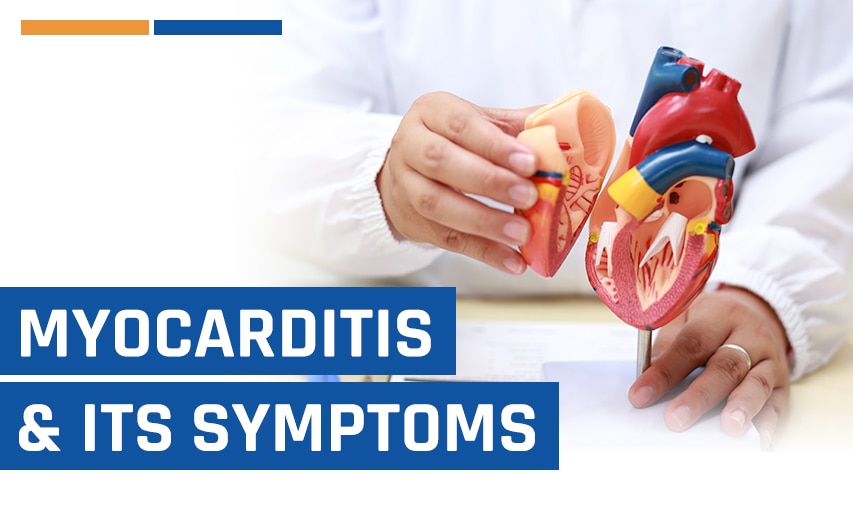



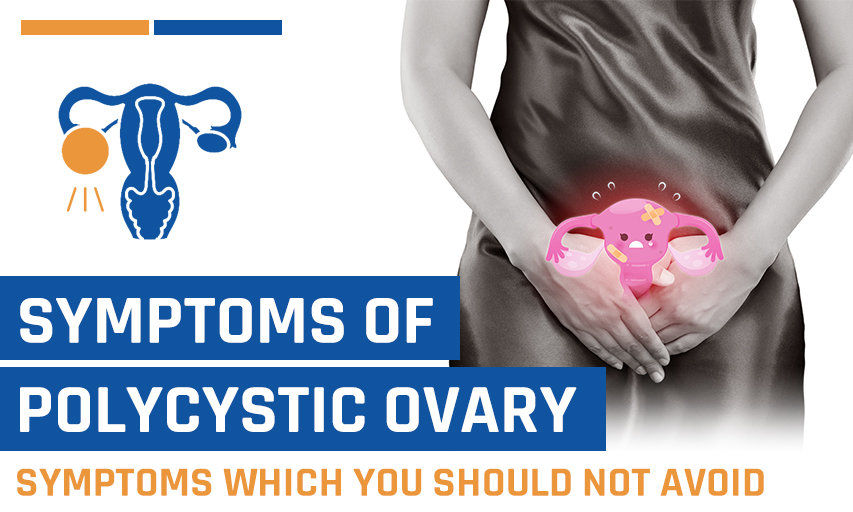

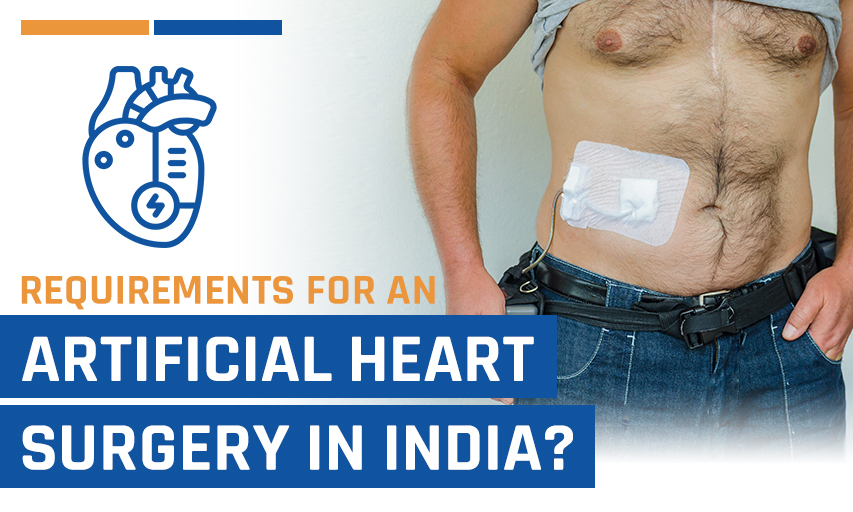
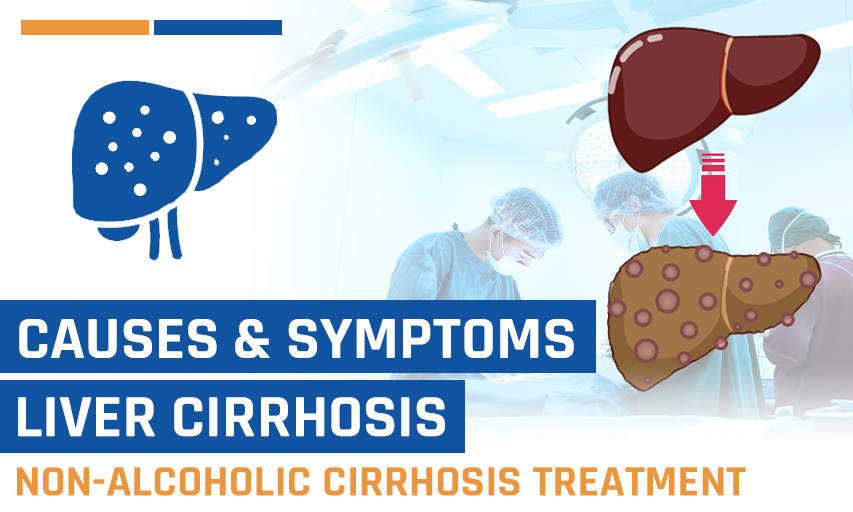
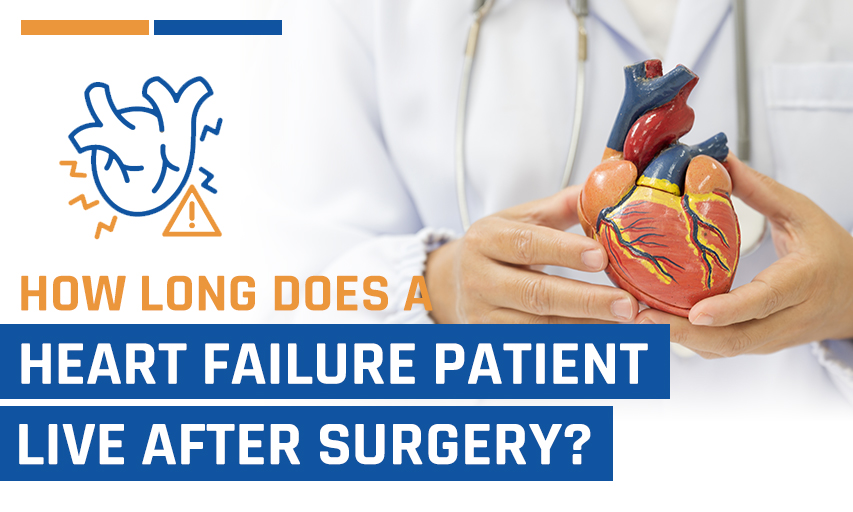


Be First To Comment
Leave a Comment